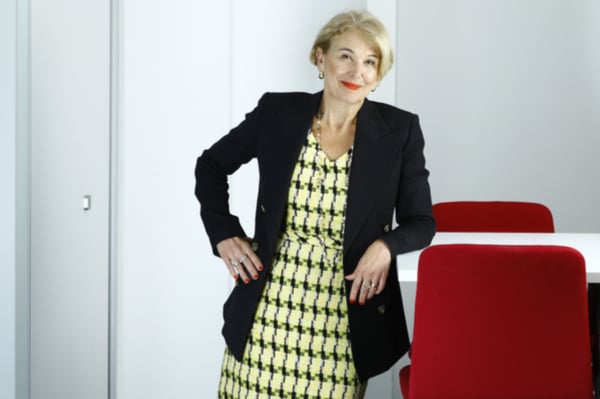The paradox of the pandemic
Tuesday 23 June 2020
My two guests at the latest Better Managers Briefing were CMI Companions who specialise in technology and artificial intelligence (AI): Maggie Buggie, SVP and global head of innovation services and solutions for SAP; and Stuart Brocklehurst, founder and CEO of Applegate, the procurement platform that is in part driven by AI. Our topic was how technology can drive innovation in the Covid-19 crisis.
Tech driving positive social change
The Covid-19 crisis has accelerated innovation, say Maggie and Stuart. It’s also encouraged many companies (Zoom, Google etc) to make their technology solutions available to as many users as possible.
In similar spirit, SAP has made its employee sentiment analytics tool Qualtrics freely available to all, to help companies better understand how colleagues are feeling and help them target support and change workplace practices. “Digital disruption and digital transformation… has shifted the expectations of people about the businesses they work for, and the role those businesses play in the broader community,” says Maggie.
At the beginning of lockdown, Stuart detected (via his Applegate procurement platform) that demand for hygiene and PPE products was rising rapidly. Over one weekend he pivoted the platform and set up a Covid- 19 supply hub using the same technology that powers his commercial business. The new hub took off, and now more than 30 million items per week are procured across it. Critically, the service is free to use. “I didn't want to make a profit out of a pandemic,” says Stuart.
Tech will humanise leadership
Like many guests in this webinar series, these two leaders believe that the crisis has had positive impacts on how we lead and manage. “Leadership has become more human,” says Stuart. On Zoom calls we’ve glimpsed inside people’s homes. We’ve seen eminent people with a washing basket on their desk. Personally, Stuart has spoken honestly with colleagues about the isolation he’s sometimes felt living alone during lockdown. “It’s okay not to be okay,” he says. He believes the “male public-school image of hero leadership” is now over.
Leadership today is all about maintaining authenticity and warmth while being truthful, says Maggie. On virtual team calls, she encourages team members to carve out time to relate to each other as humans. “We go around and say to each other, ‘what am I sad about, what am I glad about, what am I mad about?’” In doing this, she’s deepened her connection with colleagues she's known for years. “I felt more emotionally close to the people on that call.”
Deployed well, technology and AI can reduce the time we spend on what Maggie calls “low-value processes” such as driving to meetings, travelling to trade shows, and other low-productivity interactions. This, in turn, makes us all more human.
“We should be looking to automate the mundane, the repetitive, the unempathetic tasks,” says Stuart. He hopes this process will continue post-Covid and, crucially, will help us all reduce our carbon footprint.
The osmosis of the office
Not everything works as well remotely. Take software testing. This, says Stuart, is just the kind of task where it’s best to bring people together in the same space over pizza to interact and share ideas spontaneously.
He believes that many face-to-face interactions could be of higher quality in the future. “Instead of just going through a pro-forma recitation of pre-written material, we’ll actually make more use of what we can do when we can interact in person.”
Tech and the triple bottom line
Overall, the crisis is giving businesses a more human face, say these two leaders. Both believe we can emerge with a greater sense of purpose and more focus on people, planet and profit. “We’re seeing a better, stronger appreciation of the triple bottom line coming out of this crisis,” says Maggie. Several of SAP’s largest customers are committing themselves to reducing their carbon footprint and embracing the ‘circular economy’. Indeed she’s challenging herself and her colleagues to change the business model for the better, and to be “super-bold.”
How do we avoid companies simply returning to what Stuart calls “the bureaucratic straitjacket”? Innovate with purpose, he says. “It’s been so important to us to feel that we’re doing some small thing to help in this terrible situation… It’s increasingly important for each one of us to know the purpose and the end-result of what we do in our day-to-day work.”
Why not register for your free place at this Friday's Better Managers Briefing?
You might also like these posts on this topic:
Filling in the Gaps Report
This research highlights the ongoing challenges in closing the gender pay gap.
“As managers, we can help improve the UK economy”
Simon Takel CMgr FCMI on how CMI resources help him navigate change in the further education sector
Pink suits and ice-breakers: what we learned at CMI Communities Live, Birmingham
Experts gathered in the West Midlands to share their ideas for future-proofing leadership
“I haven’t finished developing – I’ve got more to offer”
Gem Fletcher launched her own business podcast and consultancy. She breaks down her commitment to ongoing development…
Don’t miss out - get notified of new content
Sign-up to become a Friend of CMI to recieve our free newsletter for a regular round-up of our latest insight and guidance.
CMI members always see more. For the widest selection of content, including CPD tools and multimedia resources, check out how to get involved with CMI membership.
Blog
This is a space for people to stay up-to-date with all the latest knowledge, opinions and commentary on management and leadership topics from some industry leaders.
Members See More
CMI Members have access to thousands of online learning and CPD resources. Learn more about our membership benefits
Join The Community
CMI offers a variety of flexible membership solutions, tailored to your needs. Find out more and get involved in the CMI community today.
